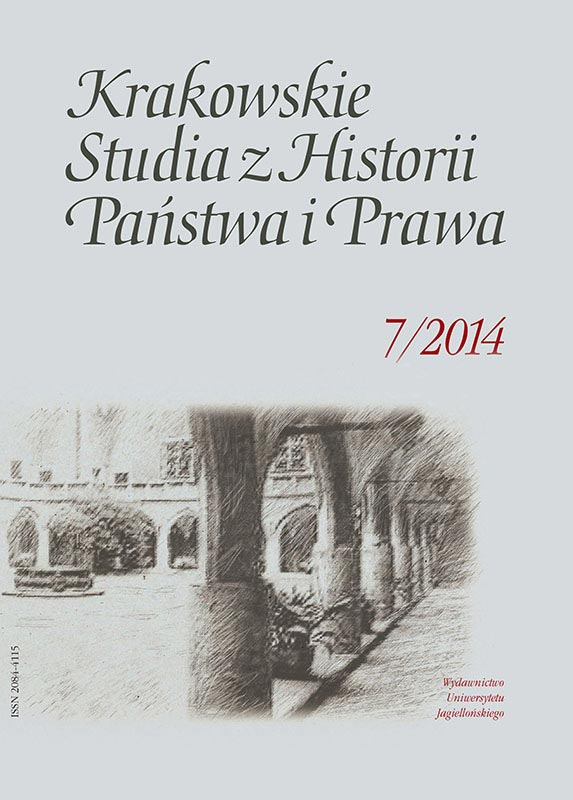Poľsko-slovenská administratíva farnosti Spišského Zamaguria (Spišského dekanátu a Nedeckého dištriktu) v rokoch 1939–1948
The Polish-Slovak Parish Administration of Spišské Zamagurie (Spiš Deanery and Nedecký District) 1939–1948
Author(s): Józef CiągwaSubject(s): Law, Constitution, Jurisprudence, History of Law
Published by: Wydawnictwo Uniwersytetu Jagiellońskiego
Keywords: Spiš; Zamagurie; Spiš Deanery; Second World War; Adam Sapieha; Polish-Slovak relations; Catholic Church
Summary/Abstract: The Slovak aggression on Poland in September 1939 had led to an incorporation of 14 villages situated in Upper Spiš, the so called Zamagurie, into the Slovak state. The parishes which were situated on this territory (functioning as the Spiš Deanery in the Polish Church administration) had passed to the jurisdiction of the Spiš bishop, having previously been excluded from subordination to the Krakow archbishop. Six Polish priests had remained on their posts until April 1940. The priestly services performed by them caused numerous legal problems. An example of such problems may be the provisions of the personal marriage law which remained in force in Slovakia, particularly as regards the civil-legal effectiveness of the marriages contracted before Polish priests; in view of these provisions, such marriages were considered invalid, unless the priest had taken an oath of allegiance to the Slovak state. The situation of the Polish priests had led to arguments between the bishop metropolitan of Krakow Adam Sapieha and the Slovak church hierarchs or else the Slovak lay authorities. Contrary to the widespread opinion to be found in Polish research as well as in the popular opinion, the Polish priests who had been deprived of their parishes were not at all mistreated. They returned to the General Gouvernement or else were also placed in Slovak monasteries. Repressions directed against Polish priests concerned above all their negative attitude towards the Slovak state and the local population. In the years 1940–1945, it was the Slovak priests who were in charge of the Spiš parishes. After Upper Spiš had been taken over by the Polish army, the Slovaks, including the priests, were subjected to repressions. The example of priest Franciszek Móš who, following a few months spent in custody, was subsequently expelled from Poland, is not an isolated case. By the end of 1945, the Slovak priests had left the territories which were taken over by Poland. After taking over the recovered parishes, the Polish priests discriminated against Slovak parishioners, among other by making it difficult for them to perform the religious rites in the Slovak language. Such conduct was the cause of the complaint lodged by the Consul General of Czechoslovakia with the Polish authorities. The attitude of the Polish priests was on the whole accepted by the Polish church hierarchy, including the bishop metropolitan Adam Sapieha.
Journal: Krakowskie Studia z Historii Państwa i Prawa
- Issue Year: 7/2014
- Issue No: 2
- Page Range: 349-364
- Page Count: 16
- Language: Slovak

